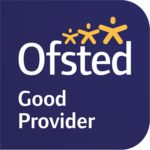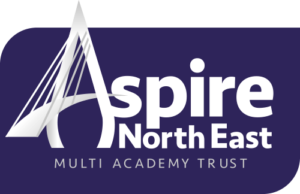Hospitality and Catering Curriculum Overview
Aim
Here at Southmoor Academy, we aim to securely equip all of our students for life beyond school as successful, confident, responsible and respectful citizens. We believe that education provides the key to social mobility and our curriculum is designed to build strong foundations in the knowledge, understanding and skills which lead to academic and personal success. We want our students to enjoy the challenges that learning offers.
Our aims are underpinned by a culture of high aspirations. Through developing positive relationships, we work towards every individual having a strong belief in their own abilities so that they work hard, build resilience and achieve their very best.
Intent
By the time students leave Southmoor Academy they will have gained essential life skills such as the ability to prepare and cook dishes from a range of countries and cultures, developing curiosity about the world around them. These dishes will be both savoury and sweet. They learn about the importance of a balanced diet and nutrient-dense foods and the effects an unbalanced diet can have. Students will learn about the important of personal and kitchen hygiene. They will learn about the correct storage of different commodities, alongside the legislation followed in the food industry.
Students will become aware of the environment, ensuring their practices are sustainable taking into consideration seasonality and food miles and have an understanding of how menus are constantly changing to ensure the needs of all customers are met for example customers with special dietary needs or choices. They also consider how to plan menus to adhere to a design brief and budget, making them more considerate consumers in the process.
Students use knowledge and skills from other areas of the curriculum, such as presenting data linked to nutrition and scaling a recipe and researching the history of dishes.
Students learn about the diverse and exciting hospitality/food industry and the skills required in the myriad of roles within different establishments and settings.
Throughout our programmes of study, every attempt is made to make explicit links to careers and the world of work. In addition to subject specific links, we aim to explicitly reinforce the skills and aptitudes which support employers say are important in the workplace;
- Aiming high, staying positive and resilience
- Communication skills (listening, speaking, presenting)
- Teamwork and problem solving,
- Creativity and thinking skills
- Self-management and leadership
The British values of democracy, the rule of law, individual liberty, and mutual respect of those with different faiths and beliefs are taught explicitly and reinforced in the way in which the school operates.
Key Stage 4 Curriculum
How does our Curriculum cater for students with SEND?
Southmoor Academy is an inclusive academy where every child is valued and respected. We are committed to the inclusion, progress and independence of all our students, including those with SEN. We work to support our students to make progress in their learning, their emotional and social development and their independence. We actively work to support the learning and needs of all members of our community.
A child or young person has SEN if they have a learning difficulty or disability which calls for special educational provision to be made that is additional to or different from that made generally for other children or young people of the same age. (CoP 2015, p16)
Teachers are responsible for the progress of ALL students in their class and high-quality teaching is carefully planned; this is the first step in supporting students who may have SEND. All students are challenged to do their very best and all students at the Academy are expected to make at least good progress.
Specific approaches which are used within the curriculum areas include:
- 1:1 support with practical tasks e.g. LSA within lessons to allow students to access controlled assessment and exam content
- Resources adapted to accommodate a range of SEND needs
- Seating plans to allow for peer/teacher support
- A range of learning roles used to embed understanding e.g. practical participant, role play taking the role of health care practitioners
- Differentiated and feedback tasks outlined clearly on the board or in teaching resources and linked to assessment criteria at KS4.
- Group work and discussion tasks to develop confidence in leadership and ownership of learning
- Work is always uploaded onto showmyhomework in order for both students and parents to work outside of the lesson
How does our curriculum cater for disadvantaged students and those from minority groups?
As a school serving an area with high levels of deprivation, we work tirelessly to raise the attainment for all students and to close any gaps that exist due to social contexts. The deliberate allocation of funding and resources has ensured that attainment gaps are closing in our drive to ensure that all pupils are equally successful when they leave the Academy.
More specifically within the teaching of Engineering we;
- In Hospitality and Catering, each member of staff holds a teaching handbook that identifies disadvantaged pupils.
- Pupils are placed in the classrooms with careful consideration so that they receive high quality focus and support from staff and peers.
- Targeted support for under-performing students
- Intervention available throughout the week
- Technician support with practical tasks
- Engagement through the use of practical learning
- Ingredients provided for disadvantaged students
How do we make sure that our curriculum is implemented effectively?
- Staff have regular access to professional development/training to ensure that curriculum requirements are met.
- Curriculum resources are selected carefully and reviewed regularly.
- The subject leader’s monitoring is validated by senior leaders.
- Staff have regular access to professional development/training to ensure that curriculum requirements are met. Staff also work in [partnership to share good practice within the trust as well as networking in the local area.
- Effective assessment informs staff about areas in which interventions are required. These interventions are delivered during curriculum time to enhance pupils’ capacity to access the full curriculum.
- Curriculum resources are selected carefully and reviewed regularly.
- Assessments are designed thoughtfully to assess student progress and also to shape future learning.
- Assessments are checked for reliability within departments and across the Trust
How do we make sure our curriculum is having the desired impact?
- Examination results analysis and evaluation, reported to the senior leaders and the local governing body to ensure challenge
- Termly assessments-analysis and evaluation meetings
- Lesson observations
- Learning walks
- Book scrutiny
- Regular feedback from Teaching Staff during department meetings
- Regular feedback from Middle Leaders during curriculum meetings
- Pupil surveys
- Parental feedback
- External reviews and evaluation




